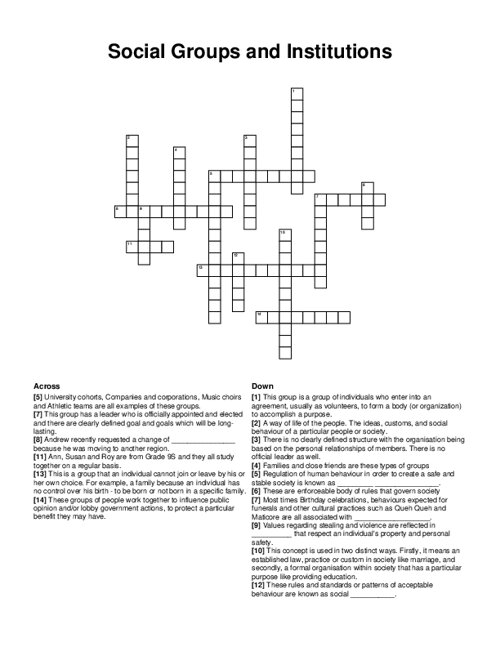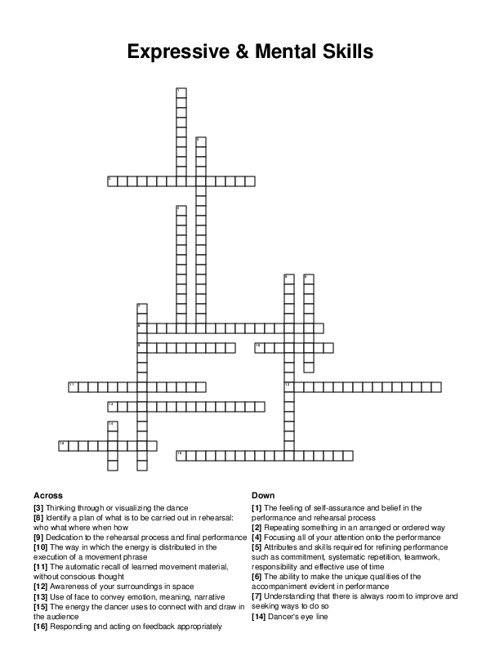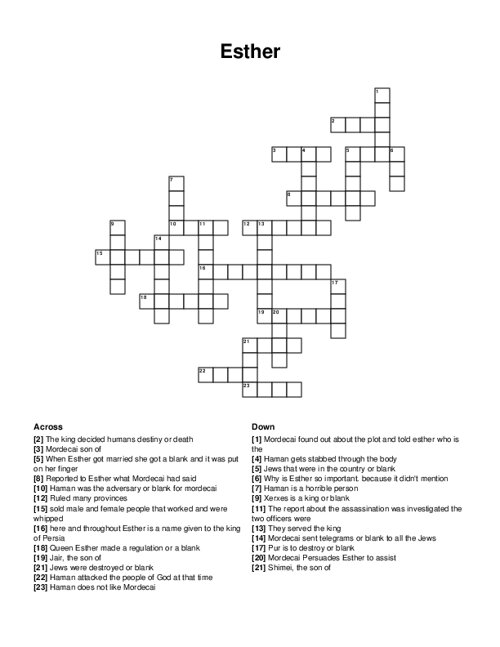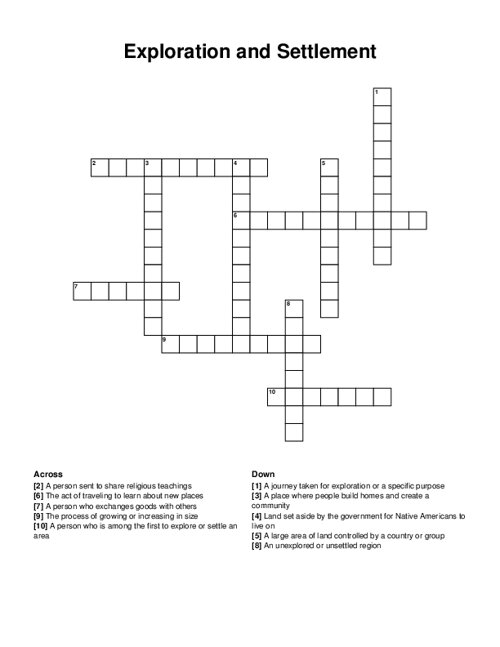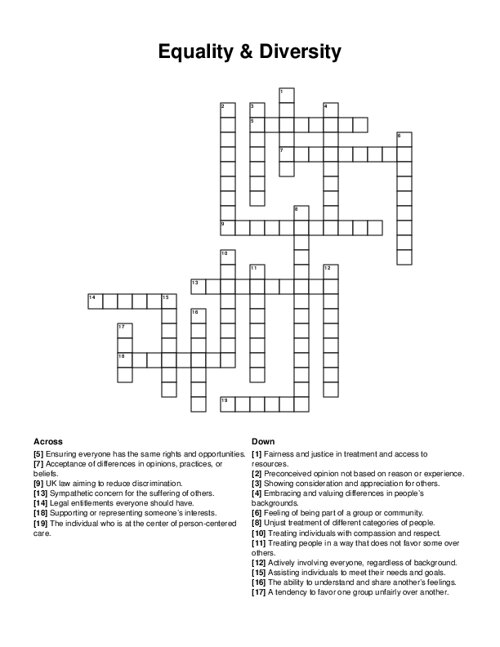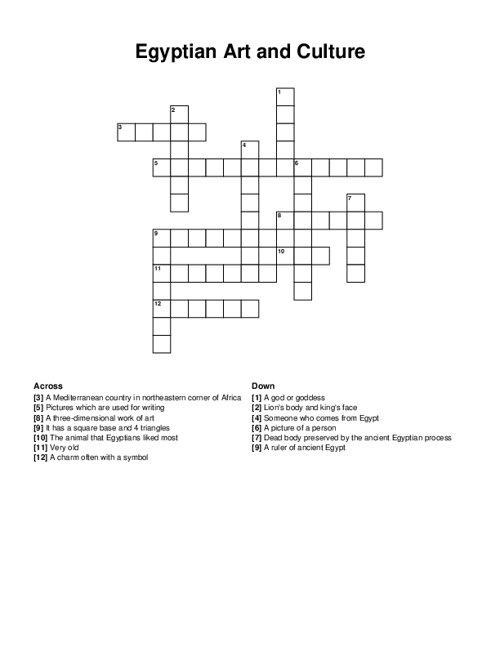Social Groups and Institutions Crossword Puzzle
Download and print this Social Groups and Institutions crossword puzzle.
Related puzzles:
Browse all Society / Culture Puzzles
QUESTIONS LIST:
- primary: families and close friends are these types of groups
- secondary: university cohorts, companies and corporations, music choirs and athletic teams are all examples of these groups.
- norms: these rules and standards or patterns of acceptable behaviour are known as social _ .
- folkways: most times birthday celebrations, behaviours expected for funerals and other cultural practices such as queh queh and maticore are all associated with _ .
- interest: these groups of people work together to influence public opinion and/or lobby government actions, to protect a particular benefit they may have.
- peer: ann, susan and roy are from grade 9s and they all study together on a regular basis.
- membership: andrew recently requested a change of _ because he was moving to another region.
- culture: a way of life of the people. the ideas, customs, and social behaviour of a particular people or society.
- voluntary: this group is a group of individuals who enter into an agreement, usually as volunteers, to form a body (or organization) to accomplish a purpose.
- involuntary: this is a group that an individual cannot join or leave by his or her own choice. for example, a family because an individual has no control over his birth - to be born or not born in a specific family.
- laws: these are enforceable body of rules that govern society
- social control: regulation of human behaviour in order to create a safe and stable society is known as _ _ .
- formal: this group has a leader who is officially appointed and elected and there are clearly defined goal and goals which will be long-lasting.
- informal: there is no clearly defined structure with the organisation being based on the personal relationships of members. there is no official leader as well.
- institution: this concept is used in two distinct ways. firstly, it means an established law, practice or custom in society like marriage, and secondly, a formal organisation within society that has a particular purpose like providing education.
- mores: values regarding stealing and violence are reflected in _ that respect an individual's property and personal safety.
